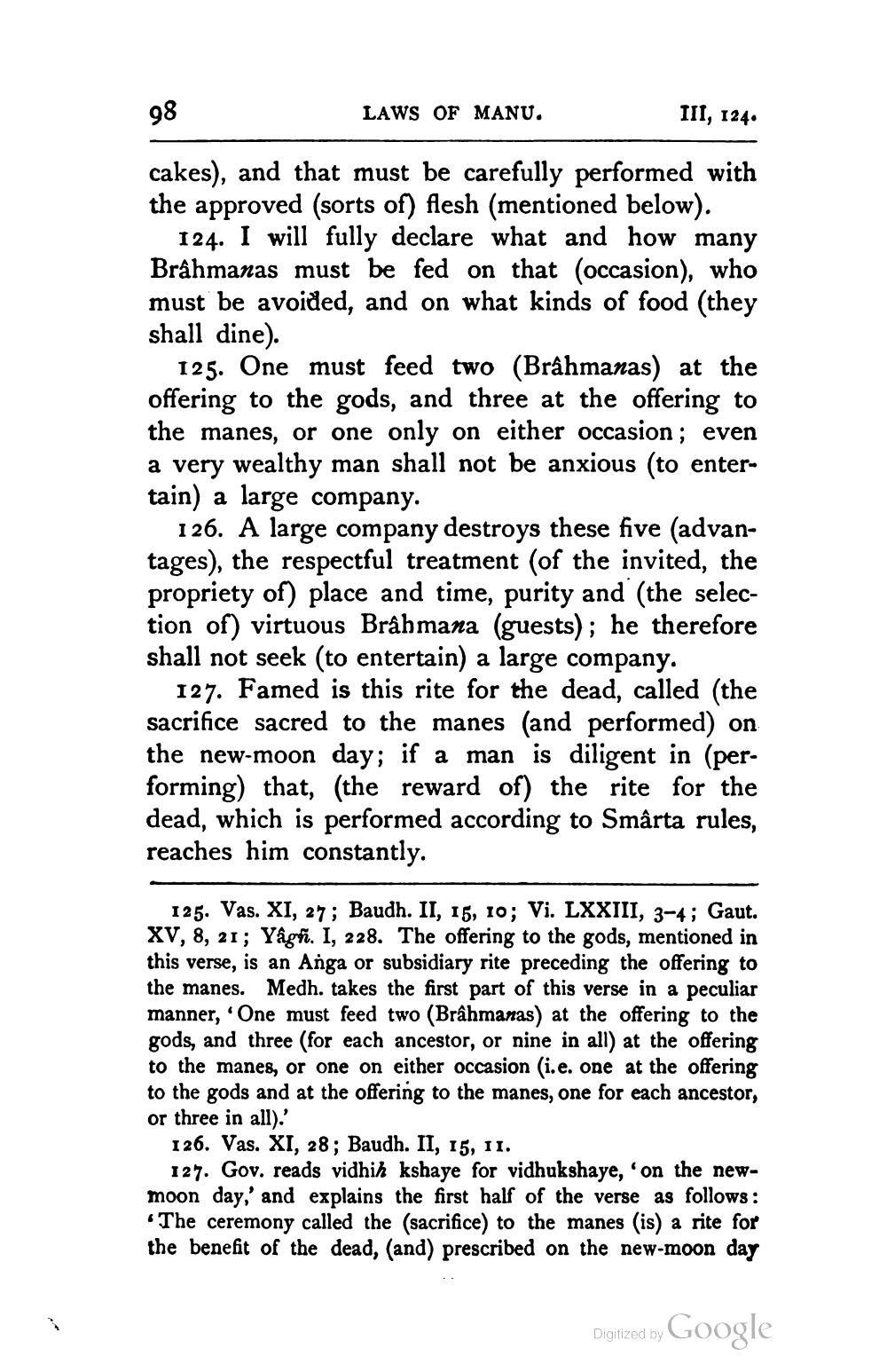________________
III, 124.
cakes), and that must be carefully performed with the approved (sorts of) flesh (mentioned below).
124. I will fully declare what and how many Brahmanas must be fed on that (occasion), who must be avoided, and on what kinds of food (they shall dine).
98
LAWS OF MANU.
125. One must feed two (Brâhmanas) at the offering to the gods, and three at the offering to the manes, or one only on either occasion; even a very wealthy man shall not be anxious (to entertain) a large company.
126. A large company destroys these five (advantages), the respectful treatment (of the invited, the propriety of) place and time, purity and (the selection of) virtuous Brâhmana (guests); he therefore shall not seek (to entertain) a large company.
127. Famed is this rite for the dead, called (the sacrifice sacred to the manes (and performed) on the new-moon day; if a man is diligent in (performing) that, (the reward of) the rite for the dead, which is performed according to Smârta rules, reaches him constantly.
125. Vas. XI, 27; Baudh. II, 15, 10; Vi. LXXIII, 3-4; Gaut. XV, 8, 21; Yâgn. I, 228. The offering to the gods, mentioned in this verse, is an Anga or subsidiary rite preceding the offering to the manes. Medh. takes the first part of this verse in a peculiar manner, 'One must feed two (Brahmanas) at the offering to the gods, and three (for each ancestor, or nine in all) at the offering to the manes, or one on either occasion (i. e. one at the offering to the gods and at the offering to the manes, one for each ancestor, or three in all).'
126. Vas. XI, 28; Baudh. II, 15, 11.
127. Gov. reads vidhih kshaye for vidhukshaye, 'on the newmoon day,' and explains the first half of the verse as follows: 'The ceremony called the (sacrifice) to the manes (is) a rite for the benefit of the dead, (and) prescribed on the new-moon day
Digitized by
Google




